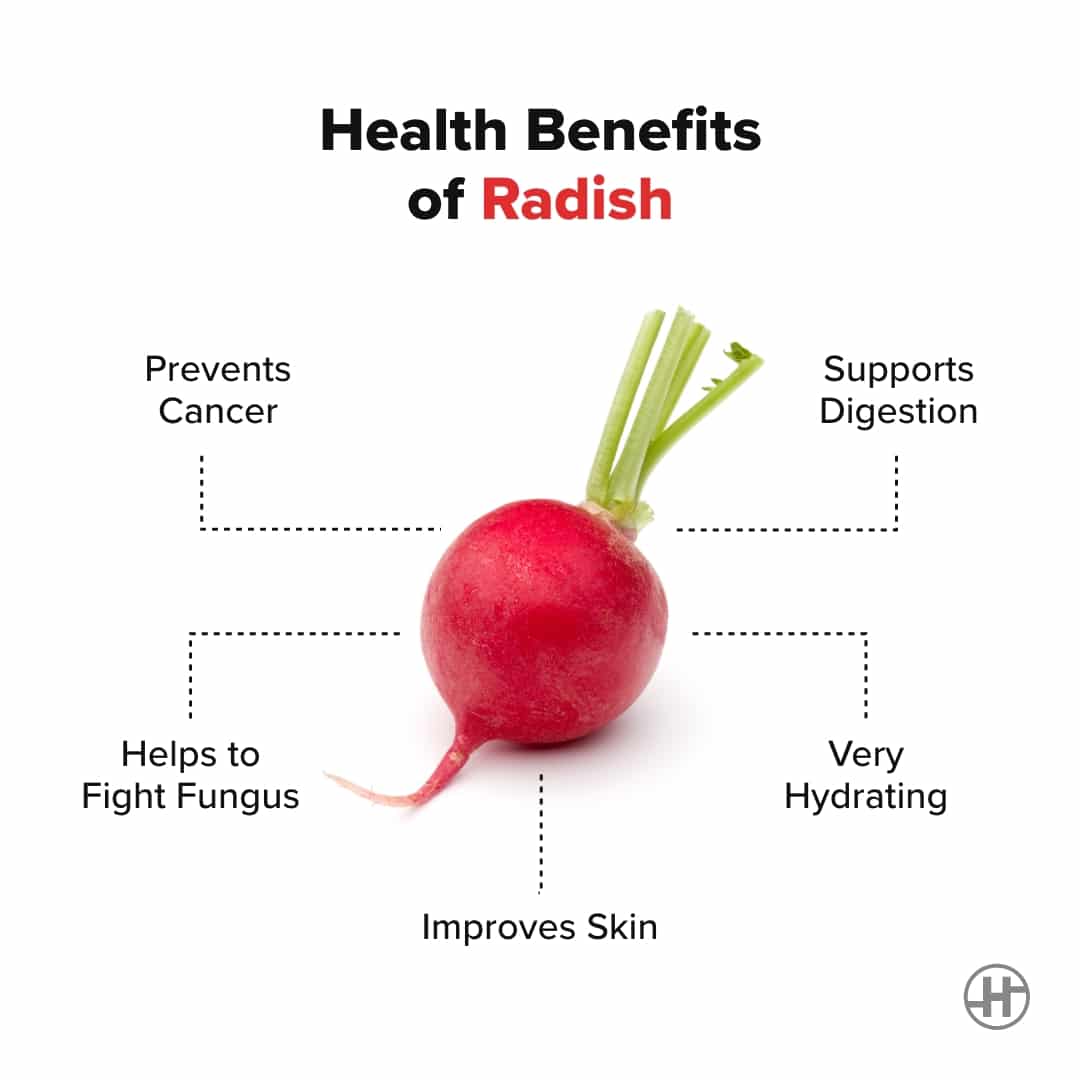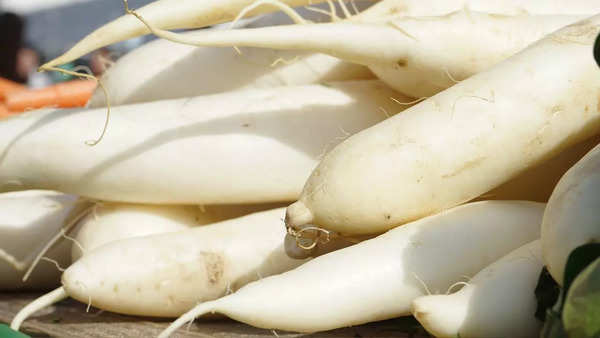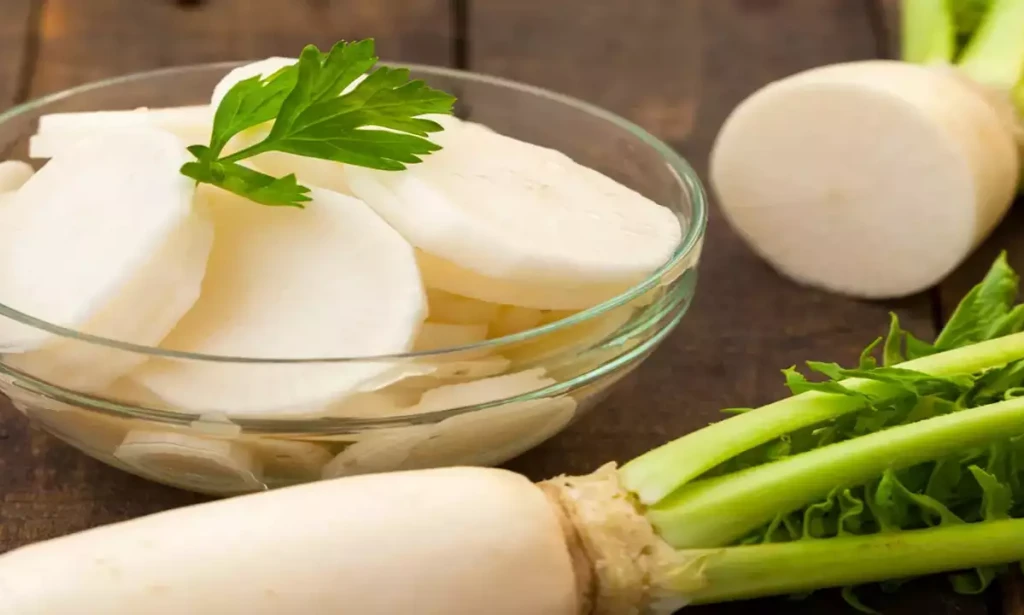Table of Contents
- Introduction to Radishes
- Nutritional Value of Radishes
- Health Benefits of Eating Radishes
- Boosting Immunity
- Promoting Digestive Health
- Detoxification and Liver Health
- Radishes and Weight Management
- How to Include Radishes in Your Diet
- Conclusion
1. Introduction to Radishes
Radishes, scientifically known as Raphanus sativus, are a root vegetable that have been cultivated for thousands of years. They are commonly consumed raw in salads, but they can also be cooked, pickled, or incorporated into various dishes. Available in a variety of colors and sizes, including red, white, purple, and black, radishes are known for their crunchy texture and peppery flavor. Besides being a tasty addition to meals, radishes are also highly regarded for their nutritional benefits. This article will delve into the advantages of eating radishes, exploring how they contribute to overall health and well-being.
2. Nutritional Value of Radishes
Radishes are incredibly low in calories, making them an excellent choice for those looking to maintain a healthy weight. A 100-gram serving of raw radishes contains just about 16 calories, while providing an impressive array of vitamins and minerals. These include vitamin C, which is essential for immune function and skin health, as well as folate, potassium, and calcium. Radishes also provide a good amount of fiber, contributing to digestive health and helping to regulate blood sugar levels.
The high water content in radishes (about 95% of their weight) makes them an excellent hydrating food, particularly beneficial during warmer months. Additionally, they contain antioxidants like anthocyanins, which may help reduce inflammation and support heart health. With such a nutrient-dense profile, radishes are an excellent choice for anyone looking to improve their diet and overall health.

3. Health Benefits of Eating Radishes
1. Boosting Immunity
Radishes are packed with vitamin C, a potent antioxidant that plays a key role in boosting the immune system. Vitamin C stimulates the production of white blood cells, which are essential for fighting off infections. It also supports the skin and mucous membranes, which serve as the body's first line of defense against harmful pathogens. Regular consumption of radishes can help keep the immune system strong, particularly during cold and flu season.
Moreover, radishes have natural antibacterial and antifungal properties that may further enhance their immune-boosting potential. These properties help combat harmful bacteria and fungi in the body, promoting overall health and reducing the risk of infections.
2. Promoting Digestive Health
Radishes are a great source of fiber, especially in the form of soluble and insoluble types. This fiber content helps support healthy digestion by improving bowel regularity and preventing constipation. Insoluble fiber adds bulk to stool, making it easier to pass, while soluble fiber aids in maintaining healthy gut bacteria and managing blood sugar levels.
Additionally, radishes contain compounds like glucosinolates, which are known to stimulate the production of bile, a substance that aids in the digestion of fats. By promoting proper digestion and bile production, radishes can contribute to a healthier digestive system and prevent issues like bloating and indigestion.
3. Detoxification and Liver Health
The detoxifying properties of radishes are another notable health benefit. These vegetables are rich in antioxidants and water content, which can help flush out toxins from the body. Radishes also promote the production of bile in the liver, which helps to remove waste and toxins. Furthermore, radishes contain sulfur compounds that have been linked to liver health and the body's natural detoxification processes.
Eating radishes regularly may support the liver in its role as the body's detoxifier, helping to clear out harmful substances and promoting better overall health. This makes radishes an excellent food to include in a diet focused on cleansing and improving liver function.

4. Radishes and Weight Management
Radishes are an ideal food for anyone looking to lose or maintain weight. Due to their low calorie and high fiber content, they can promote satiety and reduce hunger, making it easier to control portion sizes during meals. The fiber in radishes helps slow digestion, ensuring that you feel full for longer periods, which can prevent overeating.
Additionally, the high water content of radishes contributes to hydration and can help reduce the likelihood of water retention. As a low-calorie food that provides essential nutrients without excess calories, radishes can be a valuable part of a weight management or weight loss program.
5. How to Include Radishes in Your Diet
Radishes are incredibly versatile and can be enjoyed in a variety of ways. The most common method is to eat them raw, either sliced into salads or enjoyed as a crunchy snack. Their peppery taste pairs well with leafy greens, cucumbers, and other fresh vegetables. Radishes can also be roasted, which brings out their natural sweetness, or sautéed with other vegetables for a warm, flavorful side dish.
For those who enjoy pickled foods, radishes can be pickled and served as a tangy condiment for sandwiches, tacos, or grilled meats. Radish leaves, which are often discarded, can also be used in soups or smoothies for added nutrients. Whether raw, cooked, or pickled, radishes are a delicious and healthy addition to your diet.

6. Conclusion
Radishes are a powerful, yet often underappreciated, vegetable that offer a wealth of health benefits. From boosting immunity and supporting digestion to promoting liver health and aiding in weight management, these nutrient-dense root vegetables should be incorporated into more diets. Whether you eat them raw, roasted, or pickled, radishes provide a healthy and refreshing way to enhance your meals. Their versatility and nutritional value make them a must-have food for anyone looking to improve their overall health and well-being.



You must be logged in to post a comment.